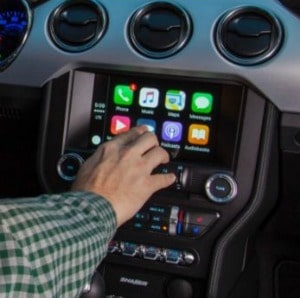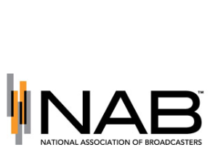
That’s according to the 2018 Infinite Dial study, presented by Edison Research and Triton Digital, now in its 20th year of providing research on digital audio, social media, smart speakers, and podcast consumption. Eighty-two percent of the population 12 and older continue to listen to AM/FM radio in the automobile today, despite the onslaught of a tremendous amount of competition. Radio’s stronghold on providing local information continues to be the reason why automobile listening is still so high.
Another reason given for radio’s strong performance was how easy it is to use. You hit a button and it’s there. Owned digital music is a distant 45%, according to the study, while online listening is even further down the list at 28%. The most interesting piece of data from this part of the survey was what’s happened to satellite radio. Some would argue that satellite radio has become fairly easy to use in the automobile as more and more vehicles come equipped with SiriusXM. However, for the first time ever, podcast listening (23%) surpassed satellite radio (21%) in the Infinite Dial survey.
On the flip side of that, back in 2008, 96% of Americans 12 and over, had at least one radio in their home. Thirty-three percent had four or more radios. In 2018, only 71% say they now have a radio in their home. Hopefully, with the growth of smart speakers, and radio’s wise move to become embedded in those devices, it will no longer matter if there are no longer clock radio’s in the home.
The Infinite Dial survey methodology includes 2,000 people, 12 and older. It was a telephone survey, half of which was done contacting people on their mobile device. Typically Edison and Triton present the data in a webinar. For the first time ever the presentation was made on Facebook Live.










In response to Kevin Fodor’s remarks:
Radio, to be sure, is not dead.
It may not be in the process of kicking the bucket.
The argument can be made, however, that much of it is in a coma – with life-support equipment and a chaplain standing by.
The gang on here, for the most part, are the same type of people on Facebook radio sites (including the internet radio bunch) who run the industry down on a daily basis. Now, I admit, I am not a fan of 8 or 9 minute stop sets crammed with :30’s, :15’s, :10’s, :05’s and “blinks”. (Personally, I think we can do better than that.) But for some here to assume that radio is dead, radio is dying, is all just a bunch of BS…IF the station runs as a LOCAL radio station. Just yesterday, for example, I did a remote at the grand opening of a convenience store in my locale. The place was packed. I got a workout for 2 plus hours shaking hands, spinning a prize wheel and handing out prizes to people, many of whom said, “Heard you on the radio” or “This is the only station I listen to”. But, I guess those people are liars, huh?
Why does Radio think Smart Speakers in the home are going to help the situation? Content is king, and when compared to all of the other audio options available on smart speakers Radio falls short. They will put up with it in the car, but no one wants to listen to 10 minutes of commercials in their house.
Conversely, will people be willing to subscribe to Amazon Music for $10 a month or more in order to avoid those commercials? Amazon is hoping the answer is yes. But at some point, the consumer decision will be between free radio or subscription streaming.
According to the article 82 percent listen to radio in the automobile, while 45 percent listen to owned digital sources, then online listening is at 28 percent, while podcasting is next at 23 percent and then satellite at 21 percent. I’m assuming that congress isn’t involved in any way in this survey, but if you add up the numbers, it’s way more than 100 percent. Even if you add up the last 4 Numbers, it comes to 101 percent, and nowhere is terrestrial radio mentioned. ( yes you could argue that online listening would include local radio, but quite frankly when I’m listening to online radio, it’s usually hundreds of miles away ). I also assume that I am missing something in this article, it wouldn’t be the first time. Hopefully someone will enlighten me. Thanks
People listen to multiple sources of entertainment. However, Congress is involved in everything, isn’t it? 🙂 I’m pretty sure Alexa is a government spy.
It would be helpful if radios were as available as they were in 2008. Even then radios were tough to find in stores but it has become an increasingly difficult part of the problem.
LOL Edison ‘Research’ – providing self-serving, sales oriented statistical results for radio for well over 20 years and counting, would be more accurate. I can just imagine the expertise and competence of the phone people asking the questions. What a complete joke that radio once again will pay for and lap up as the truth.
So because you disagree with the results, you question their methodology. OK, where is your competing study? Do you have an example of a fair study that has results you like? Or do you only attack their study with your own personal opinion? BTW “radio” didn’t pay for the study.
Radio has *always* paid for their ‘studies,’ either through directly commissioning them to make one or paying a fee to use them in their marketing or simply by just accepting their results as valid and keeping their heads safely buried in the sand because those results serve their delusional narrative that radio is safe, sound and invincible.
This is neither. If you just did some research of your own, you’d find that out.
But if you doubt the results, where are YOUR facts? Do you have a competing study? We’d love to see it.